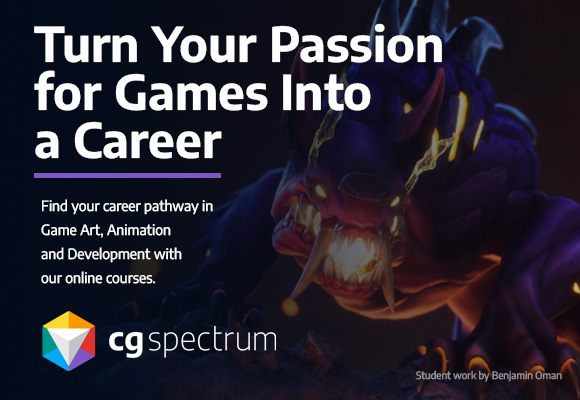Video Game Concept Art Portfolio Example
 “Wow, how did you do that?!” According to professional concept artist Eliott Lilly, that’s the reaction your portfolio should evoke from the art directors standing between you and your next job.
“Wow, how did you do that?!” According to professional concept artist Eliott Lilly, that’s the reaction your portfolio should evoke from the art directors standing between you and your next job.
Lilly has been a concept artist in the video game industry for over a decade on hit games like DOOM, F.E.A.R, and Black Ops. He also runs a concept art career website, and has written two best-selling books to help artists create “wow” in their own work.

Concept Art Portfolio Example
 Concept Art Portfolio Example
Concept Art Portfolio ExampleName: Eliott Lilly
Job: Freelance Concept Artist
Portfolio: http://eliottlillyart.com
Find your focus
Although Lilly might enjoy painting a variety of subjects, his concept art portfolio is heavily focused on science-fiction weapons and vehicles. He landed his first concept art job at Day 1 Studios thanks to that depth and focus, and he believes the game industry has continued to move away from hiring “generalist” artists. Instead, many art managers prefer to work with freelancers who can handle highly-specialized areas like weapons, vehicles, or characters. That’s why, he says, “Having too much variety in your portfolio is quickly becoming the mark of an amateur.”

Tout your creativity
When art directors review your online portfolio, they’re not just evaluating your art skills — they’re evaluating your creativity. As Lilly puts it, art directors “want to work with someone who can impress them and make them feel that they’re getting the most bang for their buck.”
That’s why Lilly’s own portfolio leans heavily on his most unique and creative pieces: His goal is to capture the imagination of art directors, and convince them he’s a creative talent they can’t pass up. When choosing pieces for your own portfolio site, try to see it from the viewpoint of an art director or other hiring manager. Can you make them believe you’re a talent they’d be foolish not to hire?

Be the best (or close to it)
If your work isn’t as good as other artists applying for the same jobs, even the best-prepared portfolio will fail to make an impact. Fortunately, Lilly says this issue is perhaps the easiest to fix, given some time and money. “It’s just a matter of humbling yourself to accept this truth, buckling down and ‘going back to school.'” Take some online classes, draw every day, and eventually your skills will improve.
On the flipside, he also says “If ArtStation has taught me anything, it’s that I suck!” And yet, he’s always been employed — perhaps proving that “skill isn’t everything.”
Find your focus, tout your creativity, and be a strong contender for the specific jobs you’re applying for. With practice and persistence, it won’t be long before an art manager opens your portfolio, takes one look, and says, “Wow, how did you do that?!”
All images via Eliott Lilly, eliottlillyart.com
Read my new book!
Making games for a living is an incredibly rewarding career, but it’s hard to break in unless you have insider knowledge. This book levels the playing field.


Leave a Reply